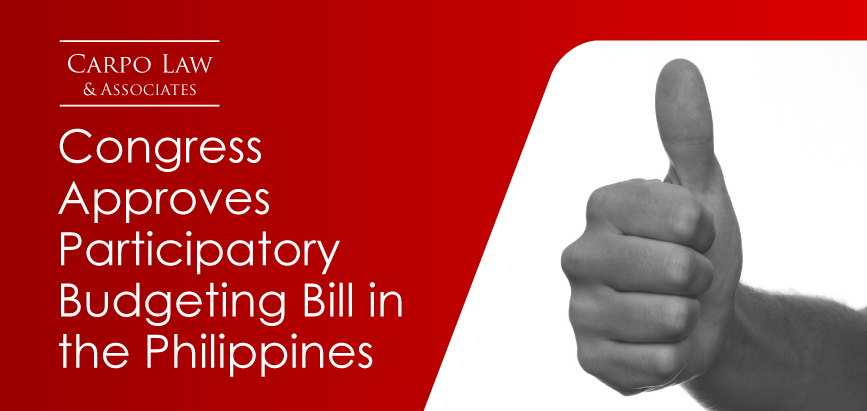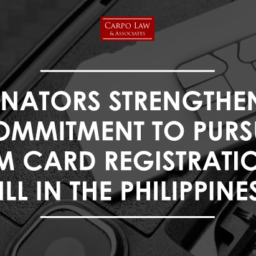
Congress Approves Participatory Budgeting Bill in the Philippines
The House of Representatives approved the Participatory Budgeting (PB) Bill in the Philippines on Monday, August 10, encouraging and institutionalizing the participation of critical sectors of society in national budget deliberations.
Recently, the House voted 200-6 in favor of House Bill (HB) No. 7407, also known as An Act Institutionalizing the Participation of Civil Society Organizations (CSOs) in the Preparation and Authorization Process of the Annual National Budget.
San Jose Del Monte City Representative Florida Robes stated, “I am hopeful that the counterpart bill in the Senate will be passed soon because it is the aim of the present administration to ensure transparency and accountability in the crafting of the annual budget.”
The bill also allows the budgeting process to be more inclusive and responsive to people’s needs.
Robes added, “This will provide a mechanism to make sure that people’s organizations participate in the process and give them a voice on how public funds should be spent.”
The House Committee on People’s Participation initially deliberated and approved the bill before its referral to the plenary.
Under HB No 7407, CSOs will be accredited to participate in budget preparations and deliberations in Congress.
Accredited CSOs are also given the right to participate in the budget preparation of government agencies, constitutional bodies, and government-owned and controlled corporations similar to the rights accorded to Non-Governmental Organizations (NGOs) in local development councils.
Moreover, CSOs will be entitled to receiving notices of hearings, budget documents, and the ability to submit their alternative budget proposals or position papers to related government bodies. They may also observe budget deliberations and participate as resource persons, including the bicameral conference committee meetings.
Any government officer who refuses or restrains CSOs from participating in budget preparations and deliberations will be penalized with a suspension from one to six months.
Violators may also be subject to a fine of ₱30,000 to ₱100,000, or both.


